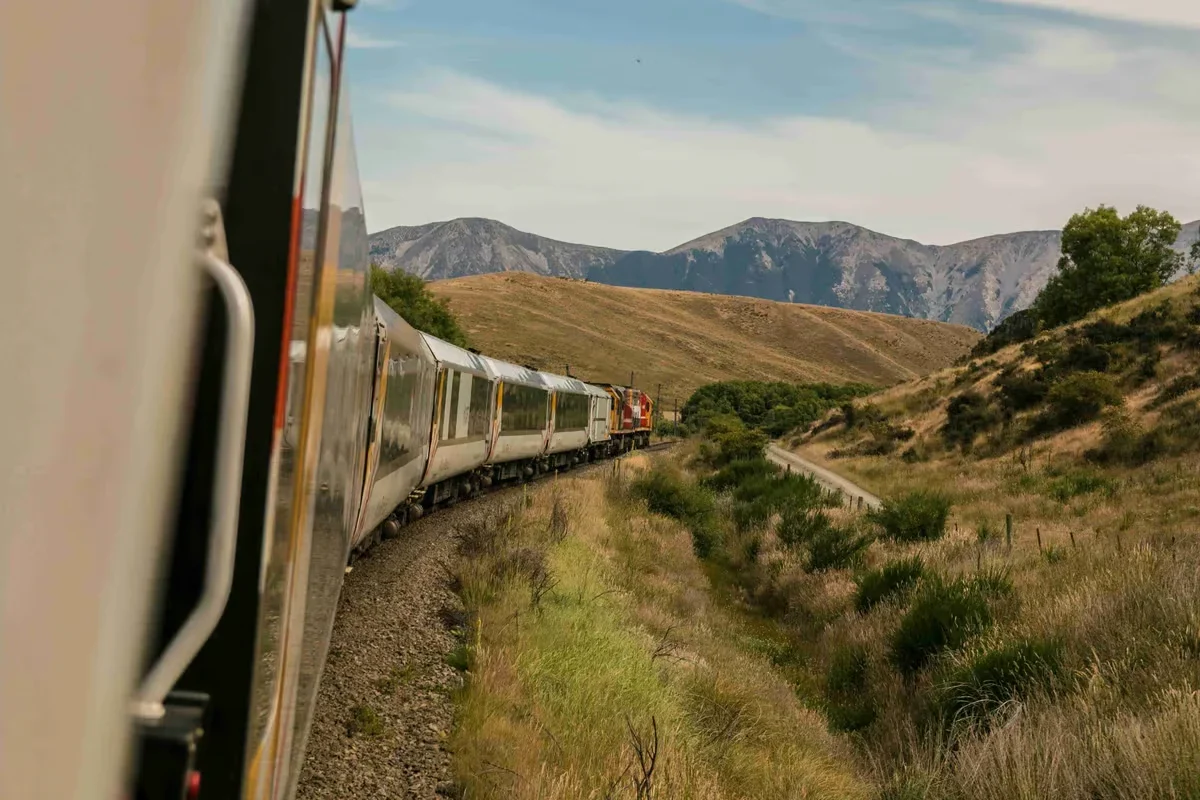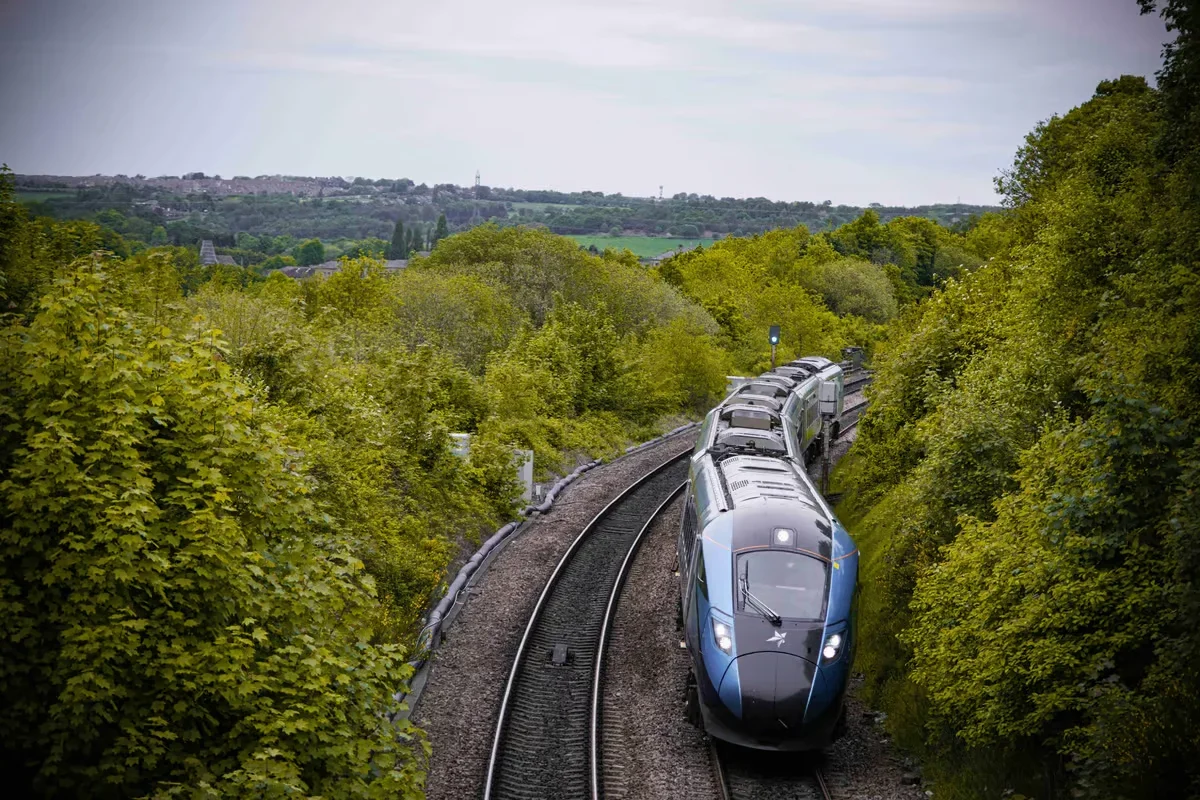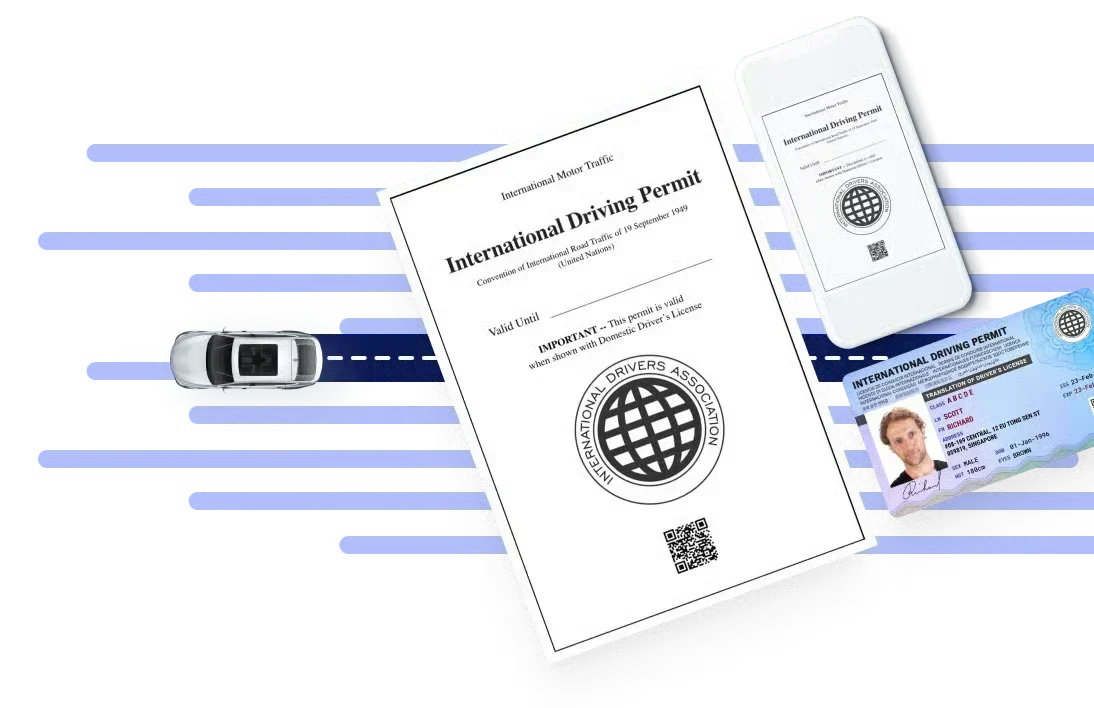Traveling in England offers a rich variety of public transport options, from the iconic London Underground to regional train services linking major cities. Whether you’re navigating the bustling bus routes of Central London, exploring the tram systems in cities like Manchester, or taking a train journey across the UK, England’s transport network caters to every need.
With tools like the Oyster card for seamless travel in London, the National Rail for intercity connections, and various local bus services, getting around is straightforward. From the major cities to quaint towns, understanding these modes of transport and planning your journey can enhance your travel experience, ensuring you make the most of England’s extensive public transportation system.
Taking the Bus in England
There are two types of buses you can take depending on your location within England. Generally, there are city buses and intercity buses:
- City Buses: In major cities like London, Manchester, and Birmingham, local bus services operate frequently, connecting neighborhoods with central locations and local amenities.
- Intercity Buses: Long-distance bus services, such as those provided by National Express and Megabus, connect cities and towns across the UK, including routes from London to Edinburgh, Glasgow, and other major destinations.
Three Major City Buses
London
- Operators: Mainly run by Transport for London (TfL).
- Coverage: Extensive network covering all areas of Greater London.
- Fares: Pay with an Oyster card, contactless payment, or travelcard. Bus fares are capped at a daily maximum.
- Features: Buses are accessible with low floors and often equipped with free Wi-Fi.
- Routes: Includes iconic routes like the 24 to Hampstead and the 9 to Aldwych.
Manchester
- Operators: Primarily run by Stagecoach Manchester , First Bus, and Go North West.
- Coverage: Services cover Manchester city center and surrounding areas.
- Fares: Pay using contactless cards, travelcards, or bus passes. Multi-ride tickets are also available.
- Features: Many buses have real-time tracking via apps and are accessible to wheelchairs and buggies.
Birmingham
- Operators: Main operators include National Express West Midlands and Diamond Bus.
- Coverage: Comprehensive network serving Birmingham and nearby areas.
- Fares: Tickets can be bought on board or via mobile apps. Contactless and travelcards are accepted.
- Features: Offers frequent services with buses equipped for accessibility.
| CITY | City Bus Fares | Payment Options & Discounts |
| London | •Single Fare: £1.75 (with Oyster card or contactless payment) •Day Cap: £5.25 (maximum amount spent per day with Oyster or contactless payment) | •Travelcard: £7.70 (valid for unlimited travel on buses for one day) •Oyster Card: Available at Oyster Ticket Stops, online, or at stations; offers discounted fares compared to cash payments. •Discounts: Available for children, students, and seniors with valid passes. |
| Manchester | •Single Fare: Typically £1.80 to £2.40, depending on the operator and distance. •Day Ticket: £4.50 (unlimited travel within Manchester city center for one day) | •Travelcard: Available for various zones, with prices ranging from £6.00 to £8.00 for a day pass. •Discounts: Concessions for children, seniors, and students with appropriate passes. |
| Birmingham | •Single Fare: Around £1.90 to £2.30, depending on the operator and journey length. •Day Ticket: £4.80 (for unlimited travel within Birmingham city area for one day) | •Travelcard: Prices vary based on zones, typically ranging from £5.50 to £7.00 for a day pass. •Discounts: Available for children, seniors, and students with valid passes. |
Intercity Buses
Intercity buses provide a cost-effective way to travel between major cities in England, with multiple options available for different budgets and preferences.
National Express
- Routes: Connects major cities and towns, including routes from London to Manchester, Birmingham, and Edinburgh.
- Features: Offers comfortable seating, Wi-Fi, and power outlets on many services.
- Fares: Prices vary depending on the distance and booking time; advance tickets are cheaper.
- Booking: Tickets can be purchased online, at stations, or via mobile apps.
Megabus
- Routes: Provides long-distance services across the UK and to some European destinations, including routes from London to Glasgow, Leeds, and Cardiff.
- Features: Known for budget-friendly fares, with amenities such as Wi-Fi and power outlets on some buses.
- Fares: Offers low-cost fares with advanced booking discounts.
- Booking: Tickets can be bought online, at ticket outlets, or through the Megabus app.
| Bus Line | Fare |
|---|---|
| National Express | •London to Edinburgh: £30 – £60 (one-way, depending on how early you book and the time of day) •London to Glasgow: £25 – £55 (one-way) •London to Manchester: £15 – £35 (one-way) •London to Birmingham: £10 – £25 (one-way) |
| Megabus | •London to Edinburgh: £15 – £40 (one-way, with discounts for early bookings) •London to Glasgow: £10 – £30 (one-way) •London to Manchester: £8 – £20 (one-way) •London to Birmingham: £5 – £15 (one-way) |
| FlixBus | •London to Edinburgh: £20 – £45 (one-way) •London to Glasgow: £15 – £40 (one-way) •London to Manchester: £12 – £30 (one-way) •London to Birmingham: £10 – £20 (one-way) |
Hopping on a Train

Source: Photo by Josh Nezon on Unsplash
Depending on your itinerary, you have four types of train services to explore in England. There are Local and Regional Trains, National Rail, High Speed Trains, and Cross-country Trains. Here’s more information on each, as well as the areas covered:
Local and Regional Trains
1. Southern Railway: Operates services primarily in Southern England, connecting cities like London, Brighton, and Gatwick.
2. Arriva Trains: Provides regional services in areas such as North Wales, the Midlands, and parts of Northern England.
3. Great Western Railway: Connects London with cities such as Bristol, Cardiff, and Exeter, extending to Cornwall and South Wales.
Fare Info
- Single Tickets: Typically range from £5 to £20, depending on distance and train operator.
- Return Tickets: Usually cheaper than two singles; costs around £10 to £40 for medium distances.
- Peak vs Off-Peak: Peak fares are higher; off-peak tickets are more affordable and valid outside busy hours.
Pay online via train operator websites or apps, at the station from machines using cash or card, and contactless transactions, which are widely accepted in London.
National Rail
The National Rail network, managed by the Department for Transport, covers extensive rail services across England, Scotland, and Wales.
- East Coast Main Line: Links London with Edinburgh, passing through cities like Peterborough, York, and Newcastle.
- West Coast Main Line: Connects London to Glasgow, passing through Birmingham, Manchester, and Liverpool.
Fare Info
The National Rail fares cover extensive rail services across England and connections to Scotland and Wales. Ticket prices vary based on factors such as distance, train operator, and travel time.
- Single Tickets: Usually range from £10 to £60, depending on the route and time of booking.
- Return Tickets: Often cheaper than two single tickets, typically costing between £20 and £120 for medium to long journeys.
- Advance Tickets: Purchased in advance can offer significant savings compared to standard fares.
- Off-Peak Tickets: More affordable than peak tickets, valid for travel outside rush hours.
- Railcards: Discounts available for seniors, young people, and families.
High-Speed Trains
Eurostar: Provides high-speed services from London St Pancras International to major European cities.
- London to Paris: Approx. 2 hours 15 minutes
- London to Brussels: Approx. 2 hours
- London to Amsterdam: Approx. 4 hours
Fare Info
Eurostar (London to Paris/Brussels):
- Standard Class: Typically £50 to £150 one-way, depending on how early you book and travel time.
- Standard Premier: Usually £150 to £300 one-way, offering more spacious seats and refreshments.
- Business Premier: Generally £250 to £450 one-way, including premium services and flexible tickets.
Cross-Country Trains
Cross-Country: Operates long-distance services connecting various regions of England.
- Manchester to Penzance: A scenic route connecting Northern England with the southwest of England.
- Birmingham to Edinburgh: A major route linking the Midlands to Scotland.
Fare Info
- Single Tickets: Typically range from £20 to £80, varying with distance, time of booking, and route.
- Return Tickets: Usually more economical than two single tickets, costing between £40 and £160.
- Advance Tickets: Can be as low as £10 if booked early, offering significant savings compared to standard fares.
- Peak vs Off-Peak: Peak fares are generally higher, often ranging from £30 to £100, while off-peak fares are more affordable, typically between £20 and £60.

Source: Photo by Umair Dingmar on Unsplash
Taking the Tram
In the UK, trams provide a convenient and efficient way to navigate cities like Manchester, Sheffield, and Nottingham, offering frequent services within urban areas. In London, the Docklands Light Railway (DLR) adds a unique touch to public transport, linking the bustling Docklands with key locations across the city.
Here’s a detailed overview of trams in England, including fare and payment options:
Manchester Metrolink: One of the largest tram networks in the UK, covering the city center to suburbs and nearby towns like Salford, Bury, and Altrincham.
- Fares: Single tickets range from £1.40 to £4.50, depending on the distance traveled. Day passes are available for £6.00.
- Payment Options: Pay using contactless cards, Metrolink smartcards, or travel cards.
Sheffield Supertram: Serves Sheffield and Rotherham with four main lines (Blue, Yellow, Green, and Purple) linking key areas and suburban regions.
- Fares: Single tickets start at £1.80, with day passes available for £4.50.
- Payment Options: Contactless cards, smartcards, and paper tickets.
Nottingham Express Transit (NET): Consists of two lines (NetLine 1 and NetLine 2) connecting Nottingham City Center with suburbs and nearby towns.
- Fares: Single tickets are approximately £2.00, with day passes costing around £4.00.
- Payment Options: Use contactless cards, NET cards, or buy tickets from machines at tram stops.
Docklands Light Railway (DLR): A light rail system in London connecting the Docklands area to central locations like Bank and Tower Gateway.
- Fares: Prices are similar to London Underground fares, ranging from £2.50 to £5.00 depending on the journey length.
- Payment Options: Use an Oyster card, contactless payment card, or buy a paper ticket from ticket machines.
Sharing the Ride Together
Ride-sharing services in England have become a popular and convenient way to travel, especially in urban areas. Platforms like Uber, Bolt, and Free Now allow users to book rides quickly through an app, offering a flexible alternative to traditional taxis.
Taxis
Black cabs, known for their iconic design, are widely available in cities like London, Manchester, and Birmingham. They can be hailed on the street, found at taxi ranks, or booked in advance via phone or app. Fares are metered, with a starting rate of around £3.20, which increases based on distance and time of day.
Payment Options: Most taxis accept cash and card payments, and many now offer contactless payment options.
Ridesharing
Services like Uber, Bolt, and Free Now operate in many cities, providing a more flexible and often cheaper alternative to traditional taxis. They offer app-based bookings, upfront pricing, and options like UberX or premium rides.
Payment Options: Payments are made through the app, with options for debit/credit cards, PayPal, and cash in some cities.
A Ferry-tale Adventure
Ferries are a vital part of England’s transport network, connecting both domestic islands and international destinations. Whether traveling to the Isle of Wight or crossing the Channel to France, ferries provide a scenic and convenient way to get around.
Domestic Ferries
- Ferries operate from key ports like Portsmouth, Plymouth, and Newcastle.
- Popular domestic routes include Portsmouth to the Isle of Wight, Southampton to Cowes, and Penzance to the Isles of Scilly.
- Main operators include Wightlink, Red Funnel, and Scillonian.
Fare Estimates
- Prices typically range from £15 to £50 for a single passenger, depending on the route and season.
- Vehicle ferry tickets start around £40 to £100, varying by vehicle size and route.
Payment Options: Most ferry operators accept cash, card payments, and contactless payments. Online booking in advance is often available with discounts.
International Ferries
- Ferries connect England to mainland Europe via the English Channel from ports like Dover, Portsmouth, and Newhaven.
- Common routes include Dover to Calais, Dunkirk, and Portsmouth to Cherbourg.
- Major operators include P&O Ferries, Brittany Ferries, and DFDS Seaways.
Fare Estimates
- Passenger fares typically range from £25 to £70, with higher prices during peak travel times.
- Vehicle fares for cars start around £80 to £150, depending on the route and size.
Payment Options: Accepted payment methods include credit/debit cards and online payments when booking in advance.
Car Rental
Renting a car in England offers the flexibility to explore both bustling cities and scenic countryside at your own pace. With various rental companies and affordable options, tourists can easily navigate England’s roads, provided they meet certain requirements like having a valid driver’s license and credit card.
Here are some car rental companies you might want to consider if you’re planning to go on a road trip:
- Enterprise: One of the largest car rental companies, with branches throughout England.
- Hertz: Popular for both short-term and long-term rentals with several vehicle options.
- Avis: Offers convenient locations at airports and in major cities.
- Europcar: Known for affordable options and a wide variety of vehicles.
- Sixt: Offers luxury and economy vehicles with flexible pickup locations.
Estimated Rental Price:
- Economy Car: £20-£40 per day, depending on location and availability.
- Compact Car: £30-£50 per day.
- SUV/Minivan: £60-£100 per day.
- Luxury Car: £100-£200 per day.
- Weekly Rentals: Discounts are typically available, with prices starting at around £150 for economy vehicles.
Requirements
To rent a car, a universal driving permit o r international driving permit (IDP) might be required if their license isn’t in English. Generally, the minimum rental age is 21, with additional fees for drivers under 25. Renters need to present a passport or ID, proof of address, and a valid credit card for the deposit.
Basic insurance is usually included, but extra coverage such as collision damage waivers (CDW) can be purchased. It is a must to adhere to local traffic laws in England to ensure a smooth journey.
Essential Tips for Commuting Tourists
1. Plan Your Journey: Use tools like National Rail’s journey planner and Transport for London’s website to check routes, timetables, and real-time updates.
2. Purchase Tickets in Advance: For trains and buses, booking tickets ahead of time can often save money and ensure availability.
3. Use Contactless Payment: For convenience, use contactless payment methods or travel cards (like the Oyster card in London) to avoid carrying cash.
4. Check for Discounts: Look out for railcard discounts, off-peak travel options, and group fares to reduce costs.
5. Follow Local Traffic Laws: Familiarize yourself with traffic laws and rules, including speed limits and parking regulations.
6. Be Aware of Peak Hours: Traveling outside of rush hours lets you avoid riding on crowded trains and buses.
7. Keep Your Belongings Safe: Always keep an eye on your belongings, especially in busy public transport areas.
8. Respect Commuting Etiquette: Offer your seat to those in need, avoid talking loudly, and follow local customs for public transport behavior.
9. Know Your Transport Options: Understand the differences between local buses, intercity services, trams, and taxis to choose the best mode of transport for your needs.
10. Stay Updated: Regularly check for any service disruptions or travel alerts that may affect your journey.
FAQs
Do I need to book train tickets in advance?
While it’s not mandatory, booking train tickets in advance can save you money and ensure you get a seat. For popular routes and peak times, it’s advisable to book early.
Can I use the same ticket for multiple forms of transport?
In many cities, you can use a single ticket for multiple forms of transport within a specific area. For example, London’s Oyster card and Travelcard can be used on buses, trams, the Underground, and some National Rail services.
Are there discounts available for tourists?
Yes, various discounts are available. Railcards offer reductions for certain age groups and travel frequencies, while some bus and tram services provide tourist passes with unlimited travel options.
What should I do if I lose my ticket or travel card?
Contact the relevant transport company’s customer service as soon as possible. They may be able to issue a replacement or offer guidance on what steps to take.
How can I find the right bus or train my journey?
Use online journey planners such as those provided by National Rail or Transport for London. They can help you find the best routes and provide real-time updates on schedules and delays.
Are there any rules for using public transport?
Follow local etiquette: avoid talking loudly, keep your belongings close, and offer your seat to those in need. Adhere to specific rules, such as no eating or drinking on some services, and always check for any local regulations.
What should I do if my train or bus is delayed or canceled?
Check real-time updates on the relevant transport company’s website or app. Most companies offer compensation or alternative arrangements for significant delays or cancellations.
Can I bring luggage on public transport?
Yes, you can bring luggage on most public transport, but ensure it does not obstruct aisles or seats. Some services may have specific restrictions or guidelines for larger items.







